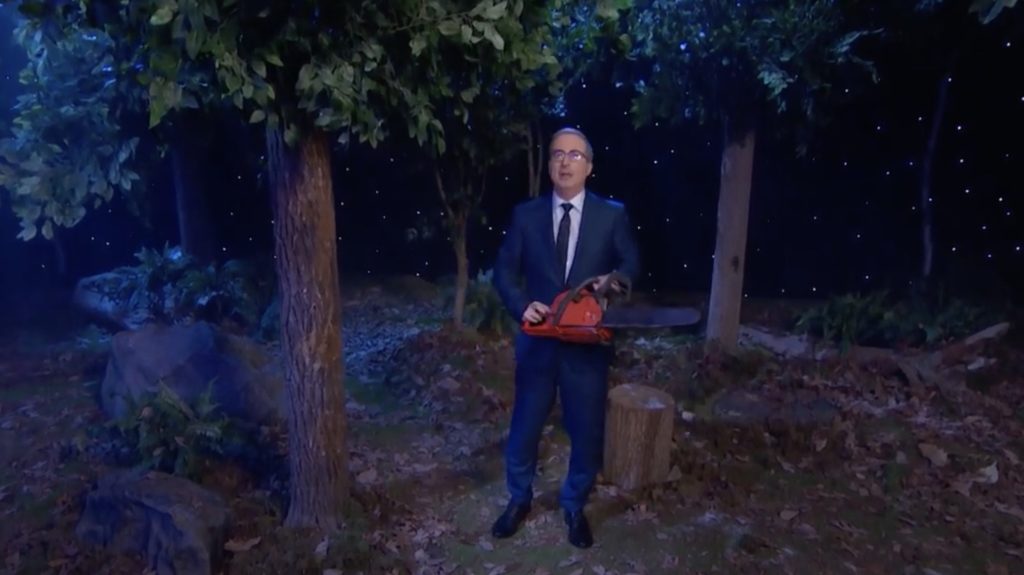John Oliver took aim at carbon offsetting. Is he right?
Share
A lot of airlines now take part in carbon offsetting programmes. Some include it automatically in the ticket price, others give passengers the option to voluntarily offset their flights.
As we detailed in our post earlier this month, the Lufthansa Group has even started offering ‘green fares’ from flights out of Scandinavia, where passengers can buy a ticket that includes a mix of offsets and Sustainable Aviation Fuel (SAF).
Though it’s a popular solution, the benefits of carbon offsetting are sometimes contested, and the offsetting sector has suffered from some unscrupulous operators operating schemes that have little actual value.
That was the theme this week of the popular HBO show ‘Last week tonight with John Oliver’. The episode in question has generated discussion within the aviation industry, given that Oliver put a lot of negative focus on airlines and airports.
Oliver’s argument can be summarized as follows:
Carbon offsetting is meant to demonstrate ‘additionality’, e.,g that project would not have happened had it not been for someone paying for the offsets.
However, Oliver claimed this is often not the case and showed a number of reforestation or tree protection initiatives, which he said made no difference to the environment.

Oliver then finished the show by saying that carbon offsetting is so unregulated that anyone can be an operator, unveiling a spoof project called “Oliver’s Offsets”, which sold 10,000 fake $1 carbon credits.
So is Oliver right?
Some of what he says is true. The carbon offset industry does at times have a Wild West feel about it and he’s correct that a few projects have been of dubious provenance.
It’s also true that not every airline CEO is in favor of offsetting.
The best example is United CEO Scott Kirby, who is a carbon offsetting skeptic. Talking to SimpliFlying’s Shashank Nigam, host of the ‘Sustainability in the Air’ podcast, Scott Kirby said that there isn’t enough space on the planet to plant the trees needed for offsetting.
Instead, Scott Kirby thinks that carbon sequestration, taking carbon out of the atmosphere, is a more promising option.
However there are things Oliver’s programme neglected.
First of all, he talked exclusively about planting trees. Carbon offsetting is not necessarily about reforestation, it is just as likely to be about (e.g.) supporting a hydroelectric energy project in the developing world. In fact, it’s possible to have an offsetting project that has no reforestation element at all.
Secondly, though drop-in fuels (Sustainable Aviation Fuels) will need to form a large part of aviation’s decarbonization strategy, quantities of SAF are very limited.
Carbon offsetting is arguably one solution that can be deployed right now, and deployed at scale.
Of course to answer John Oliver’s main point, it is important to audit any programme you are taking part in, and almost every airline does that.
Is there genuine additionality? How is the scheme run? Are there real climate benefits, as well as benefits to the local communities?
Finally, attention needs to be paid to increasing the very low (sometimes as low as 1-3%) uptake of voluntary carbon offsetting schemes.
It’s important that carbon offsetting is a choice in the booking process, as few passengers will proactively go and look for it after buying their ticket.
And here, the messaging used matters.
According to researchers at the University of Queensland, if airlines want to increase participation, they should run pictorial and short textual information that focuses on effectiveness (e.g. proof that the scheme works) and transparency (showing the passenger where the money goes).
Eventually the amount of SAF available will increase and prices will drop to make it more economical. But until then, airlines will need to rely on other measures, carbon offsetting being one of them.


